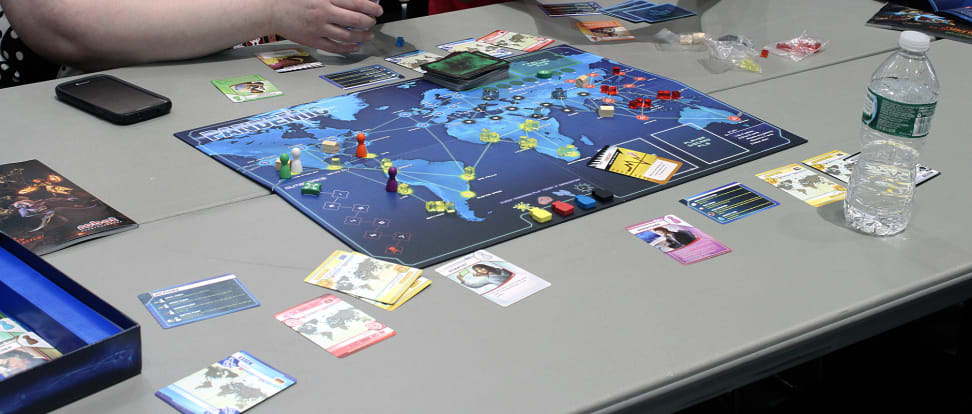 Credit:
Credit:
Products are chosen independently by our editors. Purchases made through our links may earn us a commission.
When you hear the term "gamer," you're most likely going to think of video game enthusiasts. However, there are many gamers whose favorite hobby doesn't involve a computer or TV screen at all. As a celebration of all aspects of gaming culture, the Penny Arcade Expo devoted a large portion of its floor space to tabletop gaming: boardgames and card games for players who prefer their pastimes to be more tangible.
Rows upon rows of tables—enough to seat 1,000 players—line one corner in preparation for a weekend of Magic: the Gathering tournaments. Owned by well-known toy and board game company Hasbro, Magic is the most popular collectible card game, and has a commanding presence in the tabletop area.
Tournament organizer Tom Shea noted that Hasbro has made a concerted effort to introduce the game to a wider audience, and many of the tournaments he hosts at PAX are designed to be quick and newbie-friendly.
In another section of the tabletop space, local game stores have booths set up to sell their wares, as well as tables to give demonstrations. Yet more tables are set up for players to freely congregate and play, and a nearby boardgame library lets them try new titles or introduce games to friends.
You won't find the more-recognized titles like Monopoly and Candyland here, though. A thriving industry of boardgames geared toward an older audience has produced titles like Settlers of Catan and Munchkin—games that are based more on skill and strategy than the luck of the dice.
While video games have become more mainstream over the past few decades, tabletop gaming was mostly painted as something exclusively for children, or for unpopular teenagers gathering in basements pretending to be wizards. However, that image is starting to erode. As the biggest gaming convention on the east coast continues to support tabletop gaming, the term "gamer" has grown to mean more than just video game players.
